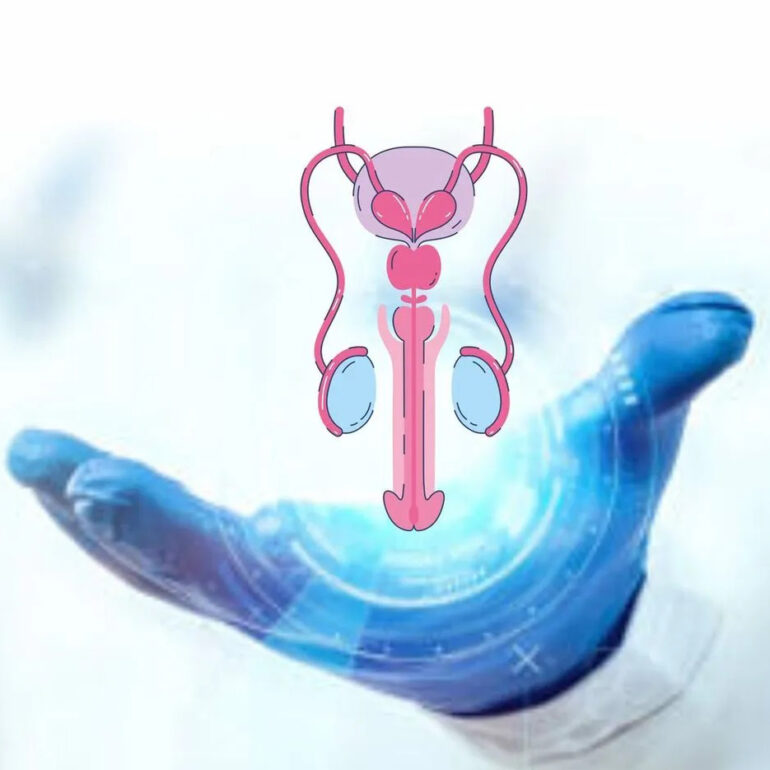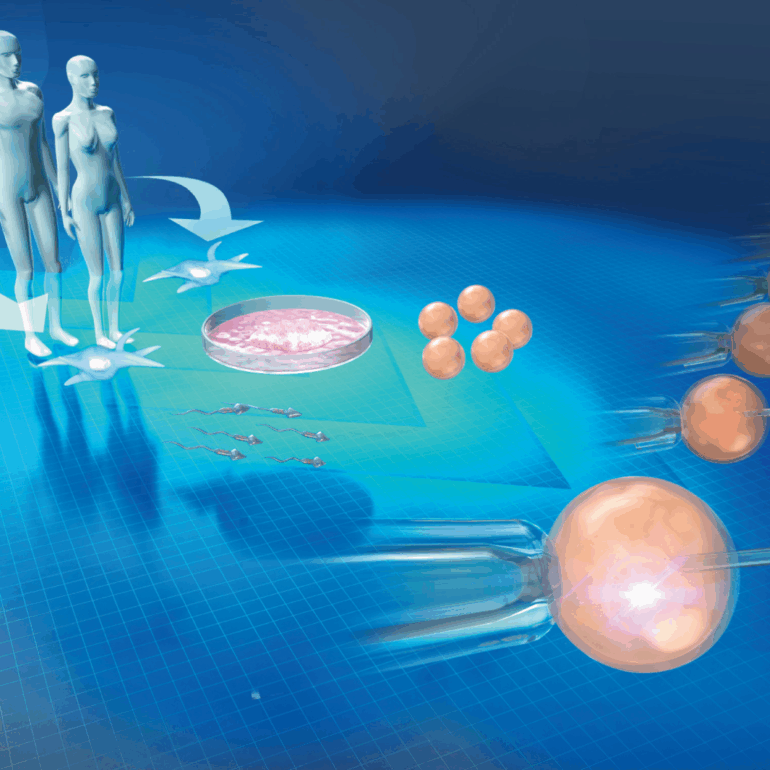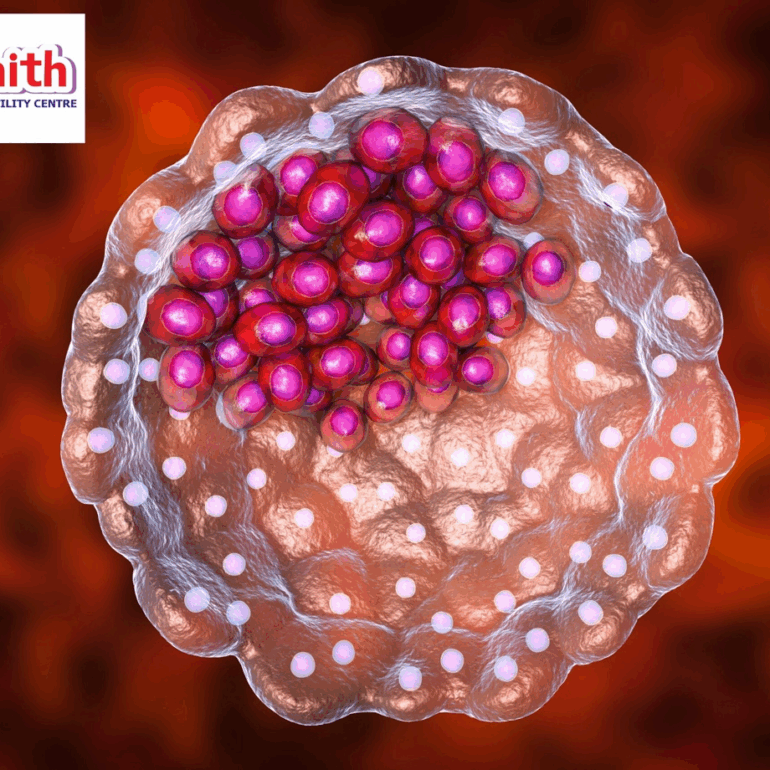Xenith Hope Circle
Join our new WhatsApp community
Are you facing fertility issues or undergoing IVF treatment? You’re not alone in this journey; we’re here to provide support.
* All identities remain anonymous, ensuring a safe and confidential space.
What is In-Vitro Fertilization (IVF)?
- Definition of IVF: In-Vitro Fertilization (IVF) is a type of assisted reproductive technology (ART) where an egg is combined with sperm outside the body in a laboratory setting. The fertilized egg, now an embryo, is then implanted into the uterus to achieve pregnancy. IVF is widely used to overcome various fertility challenges, providing hope to couples struggling with infertility.
- Overview of the Process: IVF involves multiple steps, including ovarian stimulation, egg retrieval, fertilization, and embryo transfer. The process allows fertilization to occur outside the body, increasing the chances of a successful pregnancy, especially in cases where natural conception is difficult or impossible.
- How It Differs from Other Fertility Treatments: Unlike other fertility treatments such as intrauterine insemination (IUI), IVF involves the direct handling of both eggs and sperm in a controlled laboratory environment. This level of control allows for higher precision and success rates, making IVF the preferred option for complex infertility cases.
Who is IVF For?
- Ideal Candidates for IVF Treatment: IVF is often recommended for couples who have been unsuccessful with other fertility treatments or have specific medical conditions, such as blocked fallopian tubes, severe male infertility, or unexplained infertility. It is also an option for older women or those with diminished ovarian reserve.
- Common Infertility Issues Treated by IVF: IVF is particularly effective for treating infertility caused by endometriosis, ovulation disorders, tubal factors, and low sperm count or motility. It is also used in cases where genetic issues are a concern, as preimplantation genetic testing can be performed on embryos before transfer.
- Considerations Before Choosing IVF: Before opting for IVF, couples should consider the emotional, physical, and financial implications. IVF requires significant commitment and can be emotionally taxing. It’s essential to discuss with your healthcare provider whether IVF is the best option for your specific situation.
IVF Procedure Step-by-Step
- ICSI (Intracytoplasmic Sperm Injection): ICSI is a specialized IVF technique where a single sperm is directly injected into an egg to achieve fertilization. This method is particularly useful in cases of severe male infertility, where traditional fertilization methods may not be effective.
- Assisted Hatching: Assisted hatching is a technique used to improve embryo implantation rates. A small hole is made in the embryo’s outer shell (zona pellucida) to help it hatch and implant into the uterine lining. This technique is often recommended for older women or those with previous failed IVF cycles.
- Preimplantation Genetic Testing (PGT): PGT involves screening embryos for genetic abnormalities before they are transferred to the uterus. This testing can detect conditions such as Down syndrome and other chromosomal disorders, allowing only healthy embryos to be selected for transfer.
- Frozen Embryo Transfer (FET): FET involves thawing and transferring previously frozen embryos into the uterus. This technique is beneficial for couples who have undergone multiple IVF cycles or wish to space out pregnancies while preserving embryos for future use.
- Donor Eggs/Sperm: Donor eggs or sperm are used in cases where one partner has a genetic condition, poor egg or sperm quality, or when same-sex couples or single individuals seek to conceive. Donor gametes provide a viable solution for achieving pregnancy when biological options are limited.
- IVF with Surrogacy: IVF with surrogacy involves using a gestational carrier to carry the pregnancy for intended parents. This option is chosen when the woman’s uterus cannot carry a pregnancy, due to medical reasons or other complications. The embryos are created using the intended parents’ or donors’ gametes.
Success Rates of IVF
- Factors Affecting Success: IVF success rates are influenced by factors such as the woman’s age, egg quality, sperm quality, and underlying health conditions. Younger women generally have higher success rates, while pre-existing fertility issues or lifestyle factors can impact outcomes.
- Average Success Rates by Age Group: Success rates for IVF decrease with age. Women under 35 typically have a success rate of 40-50%, while this drops to 20-30% for women aged 35-40, and 10-15% for those over 40. These rates vary depending on individual health and clinic expertise.
- Tips to Improve Success Rates: Maintaining a healthy lifestyle, managing stress, and adhering to the treatment plan can positively impact IVF success. Patients are also advised to follow their doctor’s recommendations regarding diet, exercise, and medication to optimize their chances of a successful pregnancy.
ExcellentBased on 306 reviews Trustindex verifies that the original source of the review is Google.
Trustindex verifies that the original source of the review is Google. Baisakhi Biswas05/06/2025Amazing experience with Xenith wakad centre.All the doctors and nurses, staffs are very good, their behaviour is so polite. Mamta ma'am and her team bring the best news of my life.Thank you all 😊Trustindex verifies that the original source of the review is Google.
Baisakhi Biswas05/06/2025Amazing experience with Xenith wakad centre.All the doctors and nurses, staffs are very good, their behaviour is so polite. Mamta ma'am and her team bring the best news of my life.Thank you all 😊Trustindex verifies that the original source of the review is Google. Khetan Ganvir03/06/2025We are incredibly grateful to Xenith Advance Fertility Center, Wakad for making our dream come true. After a long journey, my wife conceived successfully through their expert care and guidance, and we are now expecting twins! Dr. Mamta Dighe and Dr. Pooja Chalukya were highly knowledgeable, compassionate, and supportive throughout the process. The staff made us feel comfortable and hopeful every step of the way. Their state-of-the-art facilities and personalized approach made a real difference. We couldn’t be happier with the outcome and highly recommend Xenith Advance Fertility Center to anyone struggling with infertility. Thank you for helping us start this beautiful new chapter in our lives!Trustindex verifies that the original source of the review is Google.
Khetan Ganvir03/06/2025We are incredibly grateful to Xenith Advance Fertility Center, Wakad for making our dream come true. After a long journey, my wife conceived successfully through their expert care and guidance, and we are now expecting twins! Dr. Mamta Dighe and Dr. Pooja Chalukya were highly knowledgeable, compassionate, and supportive throughout the process. The staff made us feel comfortable and hopeful every step of the way. Their state-of-the-art facilities and personalized approach made a real difference. We couldn’t be happier with the outcome and highly recommend Xenith Advance Fertility Center to anyone struggling with infertility. Thank you for helping us start this beautiful new chapter in our lives!Trustindex verifies that the original source of the review is Google. Nikita Badgujar30/05/2025Very Good experience, Entire team is very co-operative.Environment is also good.Trustindex verifies that the original source of the review is Google.
Nikita Badgujar30/05/2025Very Good experience, Entire team is very co-operative.Environment is also good.Trustindex verifies that the original source of the review is Google. Shraddha Borse30/05/2025I had a truly positive experience at Xenith. From the moment I walked in, I felt comfortable and well taken care of. The Doctors & staff was friendly, efficient, and always willing to helpTrustindex verifies that the original source of the review is Google.
Shraddha Borse30/05/2025I had a truly positive experience at Xenith. From the moment I walked in, I felt comfortable and well taken care of. The Doctors & staff was friendly, efficient, and always willing to helpTrustindex verifies that the original source of the review is Google. Neha Pohankar27/05/2025We are deeply grateful to the entire team at Xenith Center Wakad for their incredible support and care throughout our journey. From the very first visit, we felt welcomed and understood. A heartfelt thank you to the doctor for their expert guidance, to the embryologist for their dedication behind the scenes, and to the receptionists and support staff for always being kind, patient, and encouraging. Your collective compassion and professionalism made all the difference, and we will always hold a special place in our hearts for this amazing team.Trustindex verifies that the original source of the review is Google.
Neha Pohankar27/05/2025We are deeply grateful to the entire team at Xenith Center Wakad for their incredible support and care throughout our journey. From the very first visit, we felt welcomed and understood. A heartfelt thank you to the doctor for their expert guidance, to the embryologist for their dedication behind the scenes, and to the receptionists and support staff for always being kind, patient, and encouraging. Your collective compassion and professionalism made all the difference, and we will always hold a special place in our hearts for this amazing team.Trustindex verifies that the original source of the review is Google. Yugandhara Chaudhari17/05/2025We are deeply grateful to the entire team at Xenith IVF Centre for helping us achieve our dream in the very first attempt. After going through multiple IVF failures, we began our treatment here last year — and this year, we are overjoyed to be blessed with a baby. Our heartfelt thanks to Dr. Mamata Dighe, Dr. Pooja Chalukya, and Dr. Poonam for their exceptional care, expert guidance, and personal attention throughout our journey. Their confidence, patience, and transparent communication helped calm our anxieties and brought us immense comfort. The nursing staff has been consistently kind, attentive, and compassionate at every step — always present, always supportive. We’re also thankful to the reception team, who were approachable and available even during emergencies and after hours. Our experience at Xenith has been nothing short of incredible. Thank you all for being such a vital part of this life-changing journey.Trustindex verifies that the original source of the review is Google.
Yugandhara Chaudhari17/05/2025We are deeply grateful to the entire team at Xenith IVF Centre for helping us achieve our dream in the very first attempt. After going through multiple IVF failures, we began our treatment here last year — and this year, we are overjoyed to be blessed with a baby. Our heartfelt thanks to Dr. Mamata Dighe, Dr. Pooja Chalukya, and Dr. Poonam for their exceptional care, expert guidance, and personal attention throughout our journey. Their confidence, patience, and transparent communication helped calm our anxieties and brought us immense comfort. The nursing staff has been consistently kind, attentive, and compassionate at every step — always present, always supportive. We’re also thankful to the reception team, who were approachable and available even during emergencies and after hours. Our experience at Xenith has been nothing short of incredible. Thank you all for being such a vital part of this life-changing journey.Trustindex verifies that the original source of the review is Google. nikhil16/05/2025The entire team at Xenith was very helpful and paid attention to details and patient’s need and concerns. Thanks to their constant support. Would highly recommend the facility.Trustindex verifies that the original source of the review is Google.
nikhil16/05/2025The entire team at Xenith was very helpful and paid attention to details and patient’s need and concerns. Thanks to their constant support. Would highly recommend the facility.Trustindex verifies that the original source of the review is Google. Shweta Dervankar15/05/2025Excellent journey......we got a positive result.....we tried a lot outside but was disappointed.....in xenith Dr. Mamta ma'am give us a hope and bring happiness in our life.....strongly recommending Xenith..... Thank you so much team...... Must visit for your infertility problem.Trustindex verifies that the original source of the review is Google.
Shweta Dervankar15/05/2025Excellent journey......we got a positive result.....we tried a lot outside but was disappointed.....in xenith Dr. Mamta ma'am give us a hope and bring happiness in our life.....strongly recommending Xenith..... Thank you so much team...... Must visit for your infertility problem.Trustindex verifies that the original source of the review is Google. Mayuri Darwade14/05/2025I would like to express my sincere gratitude to the entire team at Xenith IVF Centre for making our dream come true in the very first attempt. A special thanks to Dr. Mamata Dighe, Dr. Pooja Chalukya, and Dr. Poonam for their expert care, guidance, and personal attention throughout the journey. Their confidence, patience, and clear communication helped ease all our worries and gave us great comfort. The nursing staff has been extremely kind, responsive, and caring at every stage, always available, and always supportive. I’d also like to thank the reception staff, who have been readily available even during emergencies and after hours. We had a very positive and reassuring experience at Xenith. Thank you all for being such a wonderful part of this life-changing journey.Trustindex verifies that the original source of the review is Google.
Mayuri Darwade14/05/2025I would like to express my sincere gratitude to the entire team at Xenith IVF Centre for making our dream come true in the very first attempt. A special thanks to Dr. Mamata Dighe, Dr. Pooja Chalukya, and Dr. Poonam for their expert care, guidance, and personal attention throughout the journey. Their confidence, patience, and clear communication helped ease all our worries and gave us great comfort. The nursing staff has been extremely kind, responsive, and caring at every stage, always available, and always supportive. I’d also like to thank the reception staff, who have been readily available even during emergencies and after hours. We had a very positive and reassuring experience at Xenith. Thank you all for being such a wonderful part of this life-changing journey.Trustindex verifies that the original source of the review is Google. J P30/04/2025We had a truly wonderful experience with Mamta Ma’am and her amazing team. From start to finish, everyone was kind, supportive, and genuinely caring. A heartfelt thank you to Pooja Ma’am, who was always just a call away whenever we had questions or needed guidance. Thanks to their expertise and constant support, we achieved a positive outcome. Highly recommended to anyone going through this journey—you’ll be in the best hands!
J P30/04/2025We had a truly wonderful experience with Mamta Ma’am and her amazing team. From start to finish, everyone was kind, supportive, and genuinely caring. A heartfelt thank you to Pooja Ma’am, who was always just a call away whenever we had questions or needed guidance. Thanks to their expertise and constant support, we achieved a positive outcome. Highly recommended to anyone going through this journey—you’ll be in the best hands!
IVF Costs in India (Including Pune)
- Breakdown of Costs: The cost of IVF in India includes expenses for consultations, medications, egg retrieval, lab procedures, and embryo transfer. Additional costs may arise from specialized techniques like ICSI, PGT, or the use of donor eggs or sperm. A comprehensive cost estimate is provided during the initial consultation.
- Factors Influencing the Cost: IVF costs can vary based on factors such as the clinic’s location, the complexity of the case, the number of IVF cycles required, and the specific techniques used. Some clinics may offer packages that include multiple cycles, which can be more cost-effective.
- Cost Comparison: India vs. Other Countries: IVF in India is often more affordable compared to other countries, without compromising on quality. Many international patients choose India for IVF due to its world-class facilities and highly qualified specialists, making it a cost-effective option for fertility treatment.
Risks and Side Effects of IVF
- Lifestyle Changes: Couples preparing for IVF are encouraged to adopt healthy lifestyle habits, such as eating a balanced diet, exercising regularly, and reducing stress. These changes can improve overall health and increase the likelihood of a successful IVF outcome.
- What to Expect During the IVF Cycle: The IVF cycle involves several phases, including ovarian stimulation, egg retrieval, and embryo transfer. Patients should be prepared for multiple clinic visits, monitoring, and possible emotional ups and downs throughout the process.
- Emotional and Psychological Preparation: IVF can be emotionally challenging, so it’s essential to build a strong support system and consider
counseling if needed. Managing expectations and staying informed about the process can help alleviate anxiety and foster a positive mindset.
After IVF: What to Expect
- Early Signs of Pregnancy: After embryo transfer, patients may experience early pregnancy symptoms such as light spotting, cramping, or breast tenderness. A blood test conducted about two weeks after transfer confirms pregnancy. It’s important to avoid taking home pregnancy tests too early, as they can give false results.
- Follow-up Care and Monitoring: If pregnancy is confirmed, follow-up care includes regular monitoring through ultrasounds and blood tests to ensure the pregnancy is progressing well. In cases where the cycle is unsuccessful, the doctor will discuss next steps and possible adjustments for future cycles.
- Next Steps if the Cycle is Unsuccessful: If the IVF cycle does not result in pregnancy, patients can explore options like additional IVF cycles, trying different techniques, or considering alternatives like egg donation or surrogacy. It’s important to consult with your fertility specialist to determine the best course of action.
Why Choose Xenith?
We have years of experience, expertise and the latest reproductive technologies in the area of infertility and treatment plan designed for individual needs. The staff at Xenith is highly trained in the latest embryological, medical and technological know-how as well as counselling and therapeutic communication. We are equipped to offer evidence-based treatment in infertility efficiently.
- Patient-centered care
- Specialty in Recurrent IVF Failures
- Focus on interventions
- High IVF success rates
- High Clinical Standard
- All treatments under one roof
Book Appointment Today!
Recent Posts

Jul 07, 2025
Can Diabetes Cause Retrograde Ejaculation? Here’s What You Need to Know
Introduction Diabetes affects not just blood sugar, but also nerves and muscles…
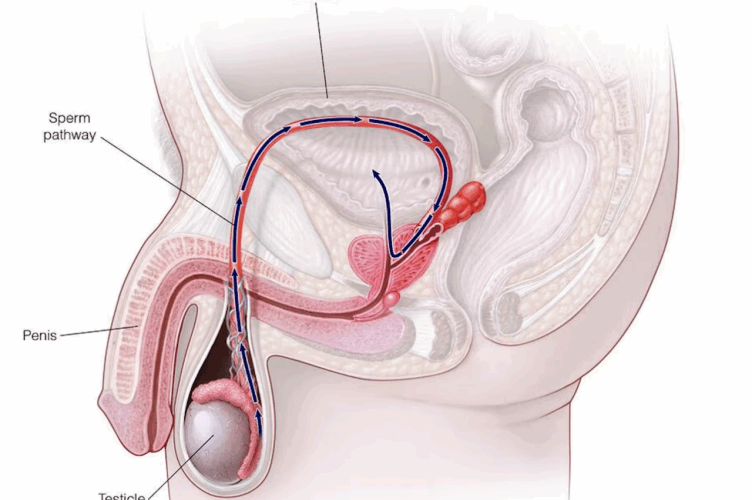
Jul 05, 2025
How to Reverse Retrograde Ejaculation Naturally and Medically
Introduction If you've been wondering “Can retrograde ejaculation be reversed?”, you're not…
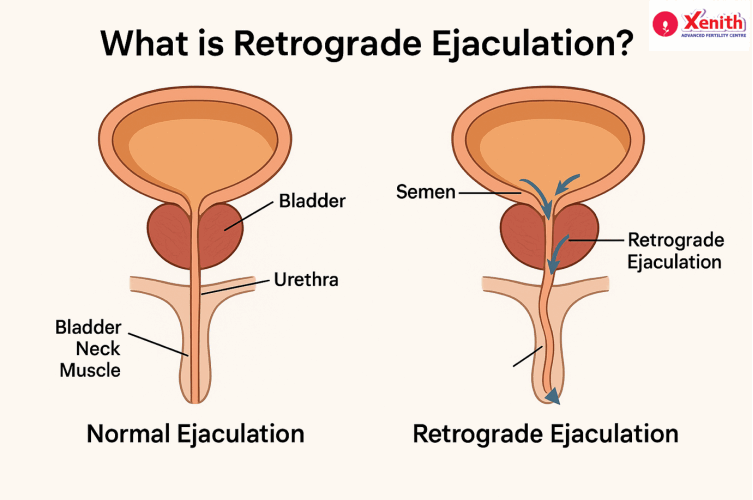
Jul 02, 2025
Retrograde Ejaculation and Male Infertility: A Complete Guide
Introduction Infertility affects around 1 in 6 couples globally, and in nearly…

Jul 01, 2025
What Is Retrograde Ejaculation? Causes, Symptoms, and Treatments Explained
When it comes to male fertility and sexual health, one topic that…

